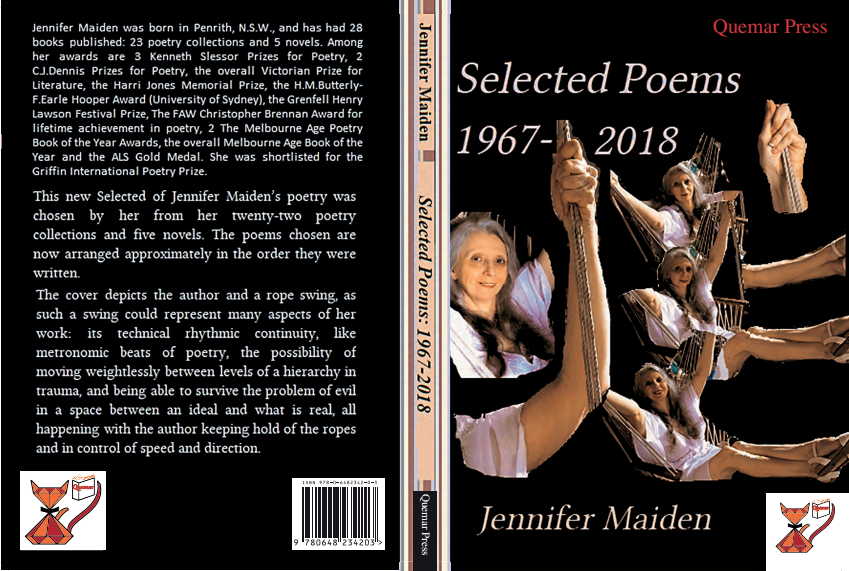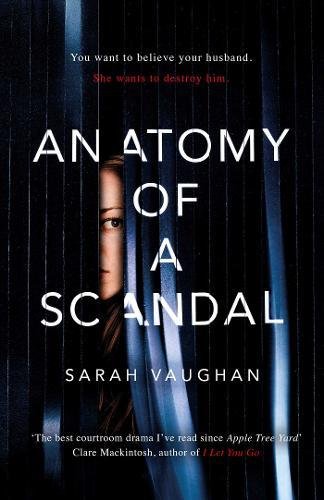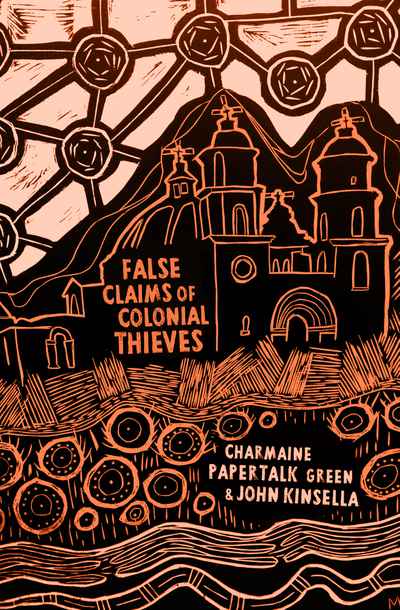 I would have to say that Silver’s a romantic as well. In his Author’s Notes he comments that he named his Russian beauty after the blond beauty in the movie Doctor Zhivago. He even has a romantic triangle ending in tragedy, but not as you’d expect. One night I couldn’t sleep for wondering how the book would play out and I named all the characters, using most of the alphabet. There’s four ‘n’ names, though! Will you enjoy The Bookworm? I think so. Very much.
I would have to say that Silver’s a romantic as well. In his Author’s Notes he comments that he named his Russian beauty after the blond beauty in the movie Doctor Zhivago. He even has a romantic triangle ending in tragedy, but not as you’d expect. One night I couldn’t sleep for wondering how the book would play out and I named all the characters, using most of the alphabet. There’s four ‘n’ names, though! Will you enjoy The Bookworm? I think so. Very much.
Author:

We have a copy of Selected Poems 1967-2018 by Jennifer Maiden to giveaway.
To win, sign up for our Free Newsletter on the right hand side of the site and enter via the newsletter. Winner will be chosen by the first of May from subscribers who enter via the newsletter.
Tracy Sorensen on The Lucky Galah
Tracy Sorensen drops by Compulsive Reader Talks to read from and chat about her new book The Lucky Galah. The conversation is wide ranging but we talk about such things as her fabulous main character Lucky, about anthropomorphism and the relationship…
A review of The Illumination of Ursula Flight by Anna-Marie Crowhurst
 This novel is more than just another a period piece of fiction. Crowhurst has written an evocative experience: a time-machine back to three and a half centuries ago into a world so unlike the present day that it actually become entangled and is essentially involved in generating our present heritage. This is set in a time before those childhood nursery rhymes were yet to be constructed as political satire and when the Dutch were the current adversary. Mix up the wrong potion and you could be accused of witchcraft.
This novel is more than just another a period piece of fiction. Crowhurst has written an evocative experience: a time-machine back to three and a half centuries ago into a world so unlike the present day that it actually become entangled and is essentially involved in generating our present heritage. This is set in a time before those childhood nursery rhymes were yet to be constructed as political satire and when the Dutch were the current adversary. Mix up the wrong potion and you could be accused of witchcraft.
A review of Anatomy of a Scandal by Sarah Vaughan
 Anatomy of a Scandal reads like a story ripped from today’s headlines: a prominent man is accused of sexual harassment. I couldn’t put the book down—I actually felt edgy when I wasn’t reading it, almost like the story was an addiction.
Anatomy of a Scandal reads like a story ripped from today’s headlines: a prominent man is accused of sexual harassment. I couldn’t put the book down—I actually felt edgy when I wasn’t reading it, almost like the story was an addiction.
A review of The Arab’s Ox by Tony Ardizzone
 Morocco stands for something to each of the characters. In order to decipher this symbol in their lives, they must look inward. They each arrive at a turning point in which Morocco speaks back to them, helps them discover its meaning to them. For Henry, Ahmed becomes his guide not only to various Moroccan sites, but to his own mortality. Rosemary, an American ex-patriate, a grizzled but classy woman, sees her younger self in Sarah and tries to steer her toward a different future.
Morocco stands for something to each of the characters. In order to decipher this symbol in their lives, they must look inward. They each arrive at a turning point in which Morocco speaks back to them, helps them discover its meaning to them. For Henry, Ahmed becomes his guide not only to various Moroccan sites, but to his own mortality. Rosemary, an American ex-patriate, a grizzled but classy woman, sees her younger self in Sarah and tries to steer her toward a different future.
A review of The Lucky Galah by Tracy Sorensen
It’s hard to believe that The Lucky Galah is a debut. It’s an ambitious, complex novel full of varying points of view, voices, historical narration, a variety of themes, and all sorts of subtle references, including many literary links and allusions, but the writing is so assured and smooth that these complexities become rich undercurrents that seamlessly integrate into the story rather than digressions.
A review of Incredible Floridas by Stephen Orr
 Times and places appear to so often remain in a form of flux throughout this novel, and to help me keep track I began underlining the locations with a yellow highlighter. As for those past decades chosen by Orr, I only have to close my eyes and it all comes back to me as if it were yesterday. Every neighbourhood seemed to have a problem son like Orr’s Hal: the one who started all the fires, or sometimes shot at you with his air rifle, and all too often kicked a neighbour’s garbage tin up and down the street.
Times and places appear to so often remain in a form of flux throughout this novel, and to help me keep track I began underlining the locations with a yellow highlighter. As for those past decades chosen by Orr, I only have to close my eyes and it all comes back to me as if it were yesterday. Every neighbourhood seemed to have a problem son like Orr’s Hal: the one who started all the fires, or sometimes shot at you with his air rifle, and all too often kicked a neighbour’s garbage tin up and down the street.
A review of False Claims of Colonial Thieves by Charmaine Papertalk Green and John Kinsella
 Though the poems stand alone and many have been published in literary journals that way, it’s the dialogue itself where the most important meaning happens. Both poets take on similar subjects of dispossession, occupation, the landscape and ecology, exploitation and historical revisionism. Both poets ultimately situate the work as a search for an identity born out of pain, guilt and suffering, and both respond through the others work to create connection and reconciliation.
Though the poems stand alone and many have been published in literary journals that way, it’s the dialogue itself where the most important meaning happens. Both poets take on similar subjects of dispossession, occupation, the landscape and ecology, exploitation and historical revisionism. Both poets ultimately situate the work as a search for an identity born out of pain, guilt and suffering, and both respond through the others work to create connection and reconciliation.
A review of Good Neighbors by Joanne Serling
 The seven adults in the circle are the most successful members of their families of origin and have more in common with each other than with their relatives. All remember their parents as “hopelessly authoritarian, yet clueless and also uninterested in parenting.” As it turns out, however, one family’s failure at parenting shakes the group to its foundations.
The seven adults in the circle are the most successful members of their families of origin and have more in common with each other than with their relatives. All remember their parents as “hopelessly authoritarian, yet clueless and also uninterested in parenting.” As it turns out, however, one family’s failure at parenting shakes the group to its foundations.